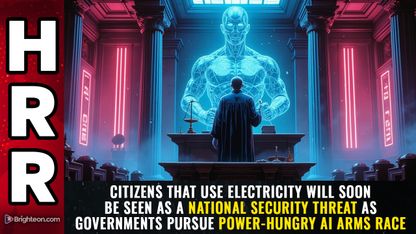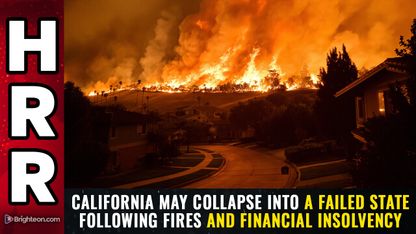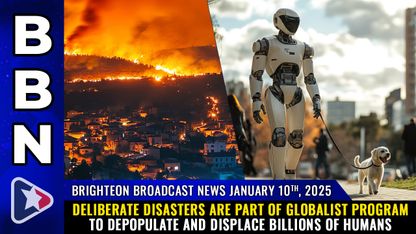
Hamas has again conducted retaliation attacks on Israel over the weekend. In fact, Abu Obaida, the spokesperson of Hamas' military wing Al Qassam Brigades, urged continued attacks in his first video message in more than six weeks on Tuesday, the 200th day of the Israel-Hamas war.
"We will keep attacking the enemy with different techniques as long as the aggression continues on our land, Obaida said. Hamas fighters would "keep coming out to fight the enemy," he added.
Because of this, Israeli Prime Minister Benjamin Netanyahu declared, "The forces of civilization must support Israel in defeating Hamas…In fighting Hamas, Israel is not only fighting for its people, it is fighting for every country that stands against barbarism." However, independent journalist Brian McGlinchey reminded the public via his Substack newsletter that Netanyahu's sentiments are quite different from the ones he privately shared in 2019.
He told Likud Party legislators then that anyone who wants to thwart the establishment of a Palestinian state has to support bolstering Hamas and transferring money to Hamas. "Doing so would help prevent the West Bank-based Palestinian Authority (PA) from ruling Gaza and giving Palestinians a relatively moderate, unified voice at the negotiating table," he said during that time. "This is part of our strategy, to isolate the Palestinians in Gaza from the Palestinians in the West Bank." McGlinchey also revealed that decades before Netanyahu's closed-door comment, the Israeli government had already pushed Hamas into its initial prominence, with direct and indirect financial support.
According to a former Central Intelligence Agency (CIA) official in 2001, Israel's initial promotion of Hamas "was a direct attempt to divide and dilute support for the strong Palestine Liberation Organization (PLO) by using a competing religious alternative." Throughout the 1970s, Israel's nemesis was the PLO, a secular and leftist organization, led by Yasser Arafat, who headed the PLO's Fatah faction.
During the 1967 War, also known as the Six-Day War or the 1967 Arab-Israeli War which was fought between Israel and a coalition of Arab states (primarily Egypt, Syria and Jordan) from June 5-10, 1967, Islamist groups began rising in prominence in Gaza as they undertook educational, cultural, social and infrastructure initiatives to make life better for Palestinian refugees there. In 1978, Israeli Brigadier General Yitzhak Segev, who was governor of Gaza and in frequent touch with Hamas' leader Sheikh Ahmed Yassin, told the Wall Street Journal that he fully grasped Yassin's ultimate aims, which were to replace Israel with an Islamic state as well as the dangers of the Hamas ideology. In the wake of Iran's 1979 revolution that saw a secular, U.S.-backed regime replaced with an Islamic republic, Hamas and other Islamists grew more popular, ambitious and violent.
Despite this development, Israel's financial backing from the West continued, claiming that the support had an additional rationale. That is to gain intelligence and identify the most dangerous of Hamas members. "In the eyes of the Israeli right, the real threat to Israel is not Hamas' violence and terrorism. The danger is a peace agreement…and the establishment of a Palestinian state," wrote Meron Rapoport at Tel Aviv-based +972 Magazine.
Hamas isn't the only extremist group the Israeli right has a soft spot for. Under an earlier Netanyahu government, Israel gave medical assistance to wounded al-Qaeda members and sent them back to fight the secular, Iran-aligned government in Syria…where they’d inevitably abduct, torture and murder civilians too. Former Mossad chief Efraim Halevy said Israel’s aid was acceptable because "Al Qaeda, to the best of my recollection, has not attacked Israel."
IDF warns Northern Gazans for being in "dangerous combat zones"
Amid the continuing chaos in the Middle East, the Israel Defense Forces (IDF) has issued a warning to people in parts of the area of Beit Lahia in northern Gaza, calling on residents to evacuate. Identifying several blocks from its map of Gaza, the IDF warned: "You are in a dangerous combat zone. The IDF will work with extreme force against terrorist infrastructure and subversive elements in the region."
IDF recommended that residents "head towards the known shelters in Blocks No. 1770, 1766" in the west and south of the city. "The most excused is he who warns," the message ended. It was unclear, though, how many people would receive the warning. (Related: Benjamin Netanyahu sets date for invasion of Rafah amid pressure over mounting civilian casualties.)
Meanwhile, the United Nations has called for an "independent, effective and transparent investigation" into the discovery of mass graves at two Gaza hospital complexes after they were besieged and raided by Israeli troops earlier this year.
UN High Commissioner for Human Rights Volker Turk said he was horrified by the scenes reported at the Nasser and Al-Shifa complexes. "Given the prevailing climate of impunity, this should include international investigators," Turk said on Tuesday. "Hospitals are entitled to very special protection under international humanitarian law. And the intentional killing of civilians, detainees and others who are hors de combat is a war crime."
Col. Yamen Abu Suleiman, Director of Civil Defense in Khan Younis, alleged that some of the bodies had been found with hands and feet tied, "and there were signs of field executions. We do not know if they were buried alive or executed. Most of the bodies are decomposed." CNN is unable to verify the claims and cannot confirm the causes of death of those whose bodies are being unearthed.
Check out WWIII.news for updates on the still ongoing conflict between Ukraine and Russia.
Sources for this article include:
Please contact us for more information.













